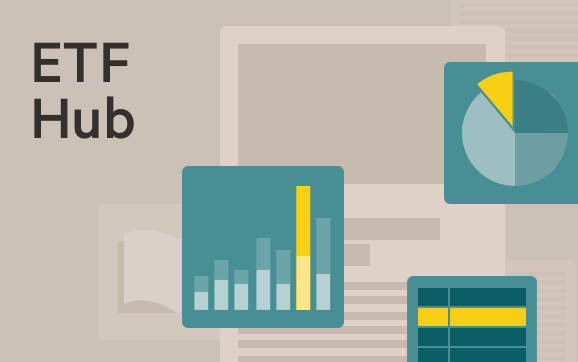HSBC AM takes lead in ‘foundational’ European shift to passive

Simply sign up to the Exchange traded funds myFT Digest -- delivered directly to your inbox.
Latest news on ETFs
Visit our ETF Hub to find out more and to explore our in-depth data and comparison tools
HSBC Asset Management has enjoyed larger growth in market share of passively managed fund assets in Europe than any other manager as it taps into a “foundational” shift in investor behaviour.
HSBC AM’s share of passive assets has grown from 18 per cent in June 2014 to 44 per cent in June 2020 and 63 per cent in June 2023.
In the past three years the manager’s actively managed assets have shrunk from €43.5bn to €39.4bn in June 2023, while its passive assets under management jumped from €39.8bn to €72.2bn.
The shift to passive has been happening across Europe. Assets in Europe-domiciled passive funds, including exchange traded funds, grew threefold to €2.8tn between June 2014 and June 2023, according to Morningstar data, excluding money market funds and funds of funds.

This article was previously published by Ignites Europe, a title owned by the FT Group.
Analysis of Morningstar data shows that 22 out of the 30 largest asset managers in Europe have experienced stronger growth in passive funds than in active funds over the same period.
Seven managers, including Amundi, UBS and Swisscanto, now have over half of their European assets in passive funds, compared with only four a decade ago.
Amin Rajan, chief executive of Create-Research, an asset management consultancy, said passive investing had “become a foundational trend” and was “[advancing] into investors’ core portfolios”.
Monika Calay, director of passive strategies research at Morningstar, agreed, saying momentum in passive investment was “steady, if not accelerating”.
HSBC AM, followed by Invesco, Abrdn and Legal & General Investment Management, have seen the fastest growth in market share of passively managed fund assets since June 2020.
Invesco’s active assets have dropped from €87.3bn to €69.6bn in the past three years, while its passive assets grew from €40.3bn to €66.6bn.
Despite the growing importance of their passive fund businesses, several of the asset managers said they were committed to offering a broad range of both active and passive investments to suit the needs of investors.
A spokesperson for HSBC AM said the firm “focuses on developing all of its capabilities”.
An Invesco spokesperson said its ultimate objective was to offer a “broad range” of active and passive strategies to “suit all of the needs of investors”.
Fergus McCarthy, head of UK investments wholesale distribution at Abrdn, said: “We can offer clients investing solutions from active to passive.”
Morningstar data shows that passive funds recorded net inflows of €109.1bn in 2022, followed by €107.9bn in the first half of 2023. By contrast, active European funds bled €257.6bn in 2022 and €197.2bn over the same two time periods.
Fabrizio Zumbo, director, European asset and wealth management research at Cerulli, said some “large traditional” asset managers had entered the ETF market in order to “defend themselves” from competitive threats.
Axa Investment Managers and Robeco are among the most recent entrants.
Invesco said it had been able to “absorb the decline” in the active mutual fund business through its “strong” ETF footprint.
With an increasing number of traditional managers entering the passive space, competition is “hotting up”, said Rajan.
He added that price was no longer the “main point” of competition.
Latest news on ETFs

Visit the ETF Hub to find out more and to explore our in-depth data and comparison tools helping you to understand everything from performance to ESG ratings
However, Zumbo said active managers still faced pressure from passive products.
Managers may need to reduce fees to “make products more competitive” against passive peers and “maintain market share”, but this could have an impact on margins, which are “already squeezed” across the industry, he said.
Despite the challenges encountered by the active industry, Rajan said active managers who meet investors’ expectations will still “remain in demand”.
Zumbo agreed: “The death of active management is overstated.”
*Ignites Europe is a news service published by FT Specialist for professionals working in the asset management industry. Trials and subscriptions are available at igniteseurope.com.
Comments